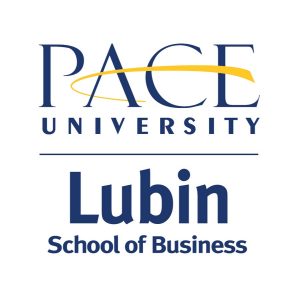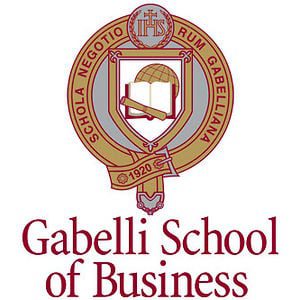MBA Jobs: Business Development Manager

One fact of life in any business, large or small, is that a strategic vision for future growth is a necessity. Equally important is translating that vision into a workable plan, which is the primary focus of the Business Development Manager. The combination of lead generation, targeting the most profitable markets, and perhaps most importantly, making and keeping healthy client relationship are the hallmarks of this role. An MBA with this specialty affords a host of opportunities for jobs in an impressive array of industries. Here, we will take a look at some of the profession’s required skills, along with salary ranges, specialty programs, and a brief summary of some current job opportunities.
Business Development (BD), briefly, is the creation and management of new leads and relationships in order to achieve sales targets. Strong communication skills are an obvious foundation in any career, but in BD it is imperative that one can express ideas to a wide variety of audiences at all levels of business. Acquiring new clients requires the ability to put oneself in another’s shoes, as opposed to just delivering a sales pitch. Other necessary BD skills include
- Negotiation
- Data analysis
- Accounting and forecasting
Business Development Manager Salary
According to Glassdoor data, the average salary for a Business Development Manager in the U.S. is $77,444 per year, regardless of degree. Typically, the salary range is from $40,000 to $135,000.
An important aspect of a BD to consider are the long and unpredictable hours. According to one Indeed.com user describing the role:
“If you are not the type of person who is willing to work for and undetermined amount of hours … this is not the job for you.” On the other hand, the long hours often result in large payoffs, including bonuses for top performers.
Another BD notes, “My current position primarily entails hunting new prospects … I learn [a lot] by dealing with various business model scenarios.”
Getting Started
A bachelor’s degree that includes studies in finance, sales, marketing, business administration, or economics is a great place to begin for a future in business development. Studies in these areas, along with organizational and consumer behavior, supplement the “numbers” side of a well rounded education, as a large part of the BD profession involves predicting the movements of trends, markets, and individuals.
University of California, Berkeley Haas School of Business
An MBA with a focus in strategy sets one apart from other applicants. Many of these degrees have an international focus. Berkeley Haas, for instance, offers the International Business Development program for MBAs. With the guidance of mentors, students work with globally based clients to help them achieve strategic development goals.

Few business schools effectively combine strategy and international business education quite like the Berkeley Haas School of Business.
University of Pittsburgh’s Katz School of Business
The University of Pittsburgh’s Katz School of Business offers the Two Year MBA with a focus in strategy. This focus trains students for “helping a corporation design a path to growth and profitability amidst competition and constant change. The strategic planner’s role consists of helping the organization to gather, analyze, and organize information.”
University of Pennsylvania Wharton School
The Wharton School’s MBA focus in strategic management is geared toward students with sights set on consulting and/or emerging market business developments. Students choose from a selection of courses, such as Strategy and Competitive Advantage, Strategic Implementation, Entrepreneurship Innovation, and Change & Entrepreneurship.
Duke University Fuqua School of Business
Fuqua School of Business at Duke offers the strategy focus as well, with the goal of training MBAs to gain insight on the question: “Why do some firms consistently outperform others?” This concentration requires students to choose from both advanced strategy and advanced analytical courses.
Pace University Lubin School of Business
The Lubin School of Business at Pace University’s MBA with a focus in strategic management provides a well rounded approach to training future managers, with special focus in areas of Strategic Thinking, Long and Short Term Planning, and Research.
Current Business Development Manager Openings
Among the companies currently hiring for a Business Development Manager are Amazon in New York City, Glaxo Smith Kline in Upper Providence, PA, and Verizon in New York City and New Jersey. Other firms looking for Business Development Management positions are KPMG, Microsoft, and American Express.
Finding The Best Affordable Full-Time MBA Programs

Earning an MBA is a great way to ensure some level of financial security in the future. However, if earning the degree leaves you with mountains of debt, that security can start to seem like a pipe dream. Fortunately, there are business schools that provide some of the best affordable full-time MBA programs in the country.
Analyzing the full-time MBA rankings from U.S. News & World Report, we outline ten of the best MBA programs throughout the country that don’t come with the hefty price tag. Check out the ten programs that cost less than $25,000 per semester below.
The Best Affordable Full-Time MBA Programs

The D’Amore-McKim School of Business at Northeastern University charges $1,600 per credit for their 55-credit program. The cost comes to about $22,000 per semester, which is not bad considering the average starting salary for recent grads is $88,000. The Boston school also offers its students a corporate residency while pursuing their degree, which helps alleviate financial pressure. The average salary for the Corporate Residencies was a respectable $32.52 per hour in 2018. Moreover, 91 percent of MBAs receive job offers within three months of graduation. Students with an interest in international business can participate in the Global Consulting Project or International Field Study.

At $11,855 per semester, going to La Salle University allows students to earn their MBAs without breaking the bank. The length of the program varies depending on a student’s previous credits and scheduling choices. Students who majored or minored in business can complete their degree in 12 months, whereas students without a business major or minor may take up to 24 months. Options for specialization include: accounting, business systems and analytics, finance, general business administration, management, and marketing.
Despite the reasonable price tag, La Salle grads have gone on to work high-level positions at well-known companies like Deloitte LLP and Morgan Chase.

The University of Colorado, Boulder Leeds School of Business ranks 65th overall among the best full-time MBA programs on U.S. News, and has a welcoming price tag to back it up. For in-state residents, the program is only $900 per credit ($1,200 for out-of-state residents). Over the course of 55 credits, this comes to just $49,500 for in-state residents over the entire two years of the program: $24,750 per year.
Leeds emphasizes entrepreneurship and a global outlook. The degree electives encourage students to concentrate on finance, marketing, management, or systems-operations. Students can complement this “functional focus” with a more tailored specialization like entrepreneurship, real estate, or sustainability. MBAs are not limited to MBA courses, as the program allows them to take up to four electives in other schools at CU Boulder. Additionally, students earning their MBA in Sustainability have the opportunity to take courses in University of Colorado’s Environmental Studies, Engineering, and Law Schools.

Upstate New Yorkers will be pleased to learn that the Binghamton University School of Management costs about $17,205 (with fees) per year for in-state residents. Non-residents pay about $26,745 (with fees) per year. Binghamton also does not require that entering MBAs have a business background, though they recommend a rudimentary knowledge of calculus, as well as strong skills in English and IT. The standard four-semester MBA is open to students from all undergrad majors. The school is currently 76th on the U.S. News list. Binghamton, NY may also be a strategic career-launch location, as the city made the Forbes list of “The Best Small Places For Business And Careers.”

Internships and opportunities to hobnob abound in the U.S. capital, making DC an excellent place to earn an MBA. However, with the cost of living on the rise, finding a relatively affordable school is key to maximizing return on investment. The cost of pursuing an MBA at the Kogod School of Business at American University comes out to about $20,923 per semester, for a total cost of $83,692. And, with a mean graduate salary of $84,725, it should not take grads long to see a respectable ROI. Kogod offers features like weekly Business Leadership Luncheons, wherein local business pioneers share their experiences and insights with students. Speakers have included senior executives from PayPal, IBM, and Marriott International. Graduates of the program have gone on to work at companies like Amazon, Deloitte, and Ford Motor Company.
YOU MAY ALSO LIKE: The Five Most Valuable Online MBAs

MBAs at the Argryros School of Business—the 79th overall school on the U.S. News list—pay $1,655 per credit. Which, for the 50-credit program, averages to about $20,687 per semester. The Orange County, CA school offers tracks in accounting, business analytics, entertainment and media management, entrepreneurship, finance, global business, marketing, and strategic management. The school also offers a variety of dual degrees, including an MBA/MFA in Film & TV Producing.

The University of San Diego School of Business Administration MBA currently costs $1,420 per credit. With a 56-credit requirement for the two-year program, the cost without fees comes to around $19,880 per semester. It is tied with the aforementioned Argyros School of Business at 79th overall on the U.S. News list of the country’s best business schools.
USD’s curriculum is based on four pillars: Leadership development; business function core; corporate social responsibility, sustainability, and ethics; integrative problem solving. For students with a global mindset, the International MBA has the same cost per credit, but requires only 44 credits.

In addition to being affordable, the Lerner College of Business is located in Delaware, where tax-free shopping makes the cost of living far less daunting. The Lerner MBA costs just $825 per credit for Delaware residents, and $1,000 per credit for those from out of state. This puts total cost per semester in a range from $9,075-$11,000.
Lerner MBAs can choose from a variety of concentrations, including (but not limited to): business analytics, international business, and sport management. Students can pursue a full-time, part-time, online, or hybrid MBA. Pursuing a hybrid of online and on-campus courses may also be fiscally helpful, since online credits tend to be more cost-effective.

The CSU College of Business offers several options for students pursuing an MBA. The school has a nationally renowned online MBA program, and also offers a Global Social and Sustainable Enterprise MBA, an Executive MBA, and an Evening MBA.
According to U.S. News, tuition for the full-time program is $757 per credit for in-state students and $1,557 per credit for out-of-state students. Given the huge cost cut for Colorado natives, CSU may be a prudent choice for residents of the state.

Students who are NYC-bound might consider applying to the Pace University Lubin School of Business. The total cost of an MBA education at Lubin education can vary, as different tracks require a different number of credits. However, at $1,267 per credit, the cost can be very manageable, particularly considering its prime spot in downtown Manhattan and all of the internship and job opportunities this location presents. Particularly for those with a bent toward accounting or finance, Lubin may be the perfect launching pad for a career in the big city. A substantial 92 percent of recent grads found jobs upon graduating.
Looking At New York City’s Best MBA Return on Investment, Pt. II

New York City is an obvious choice for budding entrepreneurs, consultants, and financiers to find their footing.
Manhattan is regularly called a playground for the wealthy, with a 2016 Newsweek article playfully and indiscriminately dubbing rich people New York’s new urban blight. So, if you’re one of the millions of people hopping into New York to extract its cultural and financial resources for personal gain before migrating to some more humane province, why not do an MBA there while you’re at it?
The proximity of New York business schools to the city’s wealth of opportunities means that MBAs have a kind of access that make b-schoolers elsewhere in the country—and the world—salivate. New York’s matchless combination of industry, culture, and strategic location means that any one of the numerous business schools that populate the region will give MBAs a veritable nitrous boost when it comes to post-graduation job placement. In fact, earlier this month we covered five other NYC MBA programs that give graduates the best return-on-investment.
You’ve surveyed the best so let’s try the rest! While Part 1 was populated by the most elite and therefore more expensive MBA options in the region, Part 2 focuses on New York programs that are more practical choices if you’re doing business school on a budget. These programs tend to offer comparatively smaller returns-on-investment but the advantage is their affordability.
So, let’s take a deeper dive into four more New York-area MBA programs that offer the best returns-on-investment for graduates.

Lubin School of Business — Pace University
The Lubin School of Business counts Hearst Magazines president Michael Clinton ’83, HBO Chairman and CEO William C. Nelson ’75, and former Chairman and CEO Ivan G. Seidenberg ’81 among its notable alumni. With tuition for Lubin’s two-year full-time MBA priced at $71,340, the program qualifies one of the mid-range options on our list. MBAs graduate with an average salary-to-debt ratio of 68 percent culled from average debt of $44,076, according to U.S. News & World Report, and an average base salary of $64,425.

Gabelli School of Business — Fordham University
Notable Gabelli School of Business notable alumni include UnitedHealth Group CEO Stephen J. Hemsley, ’74; former JP Morgan CEO Maria Elena Lagomasino ’77; Countrywide Financial Corp Co-Funder, Chairman, and CEO Angelo R. Mozilo ’60; and Empresas Polar CEO Lorenzo Mendoza. At $87,807 for its two-year full-time MBA, Gabelli’s tuition is among the priciest on our list but the handsome 53 percent salary-to-debt ratio makes up for it. MBAs graduate with an average debt of $51,870 and go on to earn an average base salary of $97,404.

Tobin School of Business — St. John’s University
The Tobin School of Business at St. John’s University is one of the most affordable MBA programs on our list, with tuition priced at $43,740 for its two-year full-time MBA. Tobin MBAs graduate with an average debt of $28,291, which when set against their $59,276 average base salary, yielding a 48 percent salary-to-debt ratio.

Stevens Institute of Technology School of Business
Recent noteworthy employers of the Stevens Institute of Technology School of Business MBAs include ExxonMobil, Goldman Sachs, Johnson & Johnson, JPMorgan Chase, L’Oreal, Lockheed Martin, Microsoft, Tishman Realty & Construction Co., Turner Construction, UBS Financial, and Verizon. Although tuition is priced at a competitive $68,988 for its two-year full-time MBA, Stevens actually has the highest salary-to-debt ratio of any school on our list, at 72%. Stevens MBAs graduate with an average debt of $48,244, according to CNN Money, and go on to earn an average base salary of $67,100.
No GMAT, No Problem: How These Schools Help MBA Applicants

There’s little joy in agonizing over less-than-stellar GMAT scores, wringing your sweaty hands over a looming GMAT appointment, and/or simply trying to sidestep the standardized nightmare, full stop. Slow down! Go easy on yourself!
For starters, there are plenty of schools that offer GMAT/GRE waivers or weigh other parts of your application more heavily than what you were able to half-remember one random Saturday morning.
Many schools acquiesce that it’s difficult parse out the ideal applicant from a test score and they eliminate many worthwhile candidates in the process. So, are there students who might do just fine in the application process skipping the GMAT rigmarole altogether?
If you have 5-7 years of high-quality work experience, it will certainly carry a lot of weight for applicants without GMAT scores, as will exceptionally high undergraduate GPAs. Applicants who can demonstrate aptitude in a related field can likely get away without GMATs. Candidates with post-graduate degrees in an unrelated field can also have the GMAT waived—let us know your secret for avoiding standardized tests all across the board, by the way.
On the flip side, if you don’t have significant work experience, didn’t graduate cum laude, and can’t demonstrated related (or unrelated) aptitude, you may have to claw tooth and nail to pass that GMAT with flying colors.
For those applicants with the right stuff, let’s take a deeper dive into five Metro-covered schools that don’t require GMAT for admissions:
Suffolk’s Sawyer School of Business
Sawyer School of Business applicants sans GMAT need not fret. Full-time MBA candidates with three years’ work experience and part-time MBA candidates with 5-7 years of experience can apply for waivers. Here are the other potential credentials that can take the place of a GMAT. In all cases documentation is required:
- If you’ve passed the CPA; CFA, Level 1; or the FRM, Level 1 exams
- If you’re a second-semester senior business or economics major or Berklee College of Music music management undergrad with a cumulative GPA of 3.3.
- If you have 2 years of relevant full-time professional work experience and a 3.4 undergraduate GPA; a 3.3 GPA and four years of experience; or 3.2 and six years of experience.
- If you have a MSA, MSF, MSBA, or MST from an AACSB-accredited b-school.
- If you are an ABA-approved law school graduate.
- If you’ve completed any SBS graduate certificate programs with a cumulative 3.3 GPA.
DePaul’s Kellstadt School of Business
If you apply to the Kellstadt School of Business in Chicago without GMAT scores, here are some alternatives that will help you make the cut. Along with an undergraduate degree from an accredited institution, Kellstadt applicants that do not take the GMAT need:
- Five years’ consecutive work experience that demonstrates management and quantitative aptitude.
- JD, MD, Ph.D., MSF degrees.
- 160 LSAT Score.
- Pass the CPA and/or PE exams.
- Any alumni from DePaul’s Driehaus College of Business with 3.2 GPA or higher and two years’ work experience.
YOU MIGHT ALSO LIKE: Social Media Do’s and Don’ts MBAs Need To Know
Rutgers Business School
Holders of a Ph.D., MD, JD, and PharmD, as well as applicants with 3.0-plus undergraduate GPAs are not required to present GMAT scores. Rutgers Business School part-time MBA and Professional Accounting MBA applicants with 10 years’ full-time experience (or 8 if they have a Master’s degree) can apply for GMAT waivers. Other related degree paths that do not require GMAT or GRE scores: The MA in Taxation, the MA in Governmental Accounting, and the MS in Supply Chain.
Pace’s Lubin School of Business
Prospective Pace Lubin School of Business MBAs with a 3.50-plus cumulative undergraduate GPAs or those already in possession of business-related post-graduate degrees can request GMAT waivers. CPAs, CMAs, or practicing lawyers can request GMAT waivers if they apply for the MS in Taxation. Applicants with three years of managerial human resources experience can request GMAT waivers for the MS in Human Resources Management.
Golden Gate University’s Ageno School of Business
The following Ageno School of Business candidates may apply for a GMAT waiver:
- Master’s degrees in unrelated fields.
- Applicants with professional licenses earned by passing a nationally recognized US exam e.g. CPA, CMA, CIA.
- Applicants with cumulative 3.50-plus undergraduate GPAs.
- Applicants with five years’ managerial experience.
- Practicing CFAs, physicians, or attorneys
Which 1-Year MBA Program in New York Is Right for You?

New Yorkers are always in a hurry. For those looking for that same speed with their MBA, they’re in luck. The city—home to eight million people—has five schools where candidates can graduate with an MBA or similar degree within a year.
What better place to build your business knowledge than New York City? Business people from around the world come to the city—but not you. You’d be living in it. Plus, major international companies are headquartered there. JPMorgan Chase, Citigroup, and IBM, for example.
Check out some of the best one-year MBA programs in the city that never sleeps.
Binghamton University School of Management
Binghamton University’s School of Management sits in Midtown New York City. Students will have easy access to Bryant Park, Penn Station, Grand Central Station, Port Authority, all the shopping they need—and the nearby beauty of Chelsea.
The school came to the area in 1970. Its Professional MBA is what sets Binghamton apart. It takes no more than a year, and students meet only on Saturdays. The curriculum does demand a full Saturday, but at least it wraps up in a year. And since it’s on the weekend, full-time working professionals are good to go, too. The school reports students can save $20,000-$50,000 compared to other MBA programs in New York City.
Zicklin School of Business – Baruch College
Baruch College formally created its Zicklin School of Business in 1998 after an endowment from an alumnus Lawrence Zicklin. But the MBA program has been offered since 1920.
Its one-year MBA program is fairly new. The first cohort enrolled this past summer. The program begins in June and takes 12 months. Applicants are expected to have two to five years experience. Given the program’s speed, the class schedule will be intense and build on already acquired knowledge. Students have the option to study abroad during the winter intersession.
Lubin School of Business – Pace University
The Lubin School of Business at Pace University has been around for more than 100 years. Since 1906, the school has been cranking out business graduates ready to take New York City by storm. It offers a unique one-year fast-track MBA—only in financial management.
This specialty in finance gives business students an edge. Graduates will walk away from Lubin knowing how to provide financial consultation to corporations. Lubin is sure to plug its students into any necessary resources for them to succeed. For example, MBA candidates can access the Bloomberg workstation and other financial databases. Classes are based in New York City and Westchester, a short train ride away.
Stern School of Business – New York University
New York University is one of New York City’s most well-known university, so the Stern School of Business is too, naturally. In the middle of Greenwich Village, students can occupy themselves with endless activities when they’re not in class.
However, the Stern School of Business doesn’t quite offer one-year MBAs. Its specialized one-year programs are for its MS in accounting, MS in business analytics, and an MS in global finance. These programs add an oomph to any business professional looking to build their expertise. Most of the programs include a global format, preparing graduates for a global field.
Lehigh University College of Business and Economics
Editor’s Note: As part of the Lehigh 1-MBA program enhancements, the internship component was replaced with a Consulting Practicum. Click here to learn more about the 1-MBA.
Part-Time MBA Programs: New York City vs. Boston

Part-time MBAs offer an abundance of perks: more flexibility, online courses, and even weekend and evening classes. They open the door for professionals who want an MBA but might also have children or a full-time job or other responsibilities that take priority.
If looking at the East Coast, two cities may come to mind: New York City and Boston. Both are drastically different metros just by the size alone. New York City is home to more than eight million people. Boston is nearly 675,000. That’s a big difference.
But both places have plenty to offer. It just comes down to what a person is looking for.
Here is the quick version for both cities:
-
- New York City: The city’s part-time programs cater to candidates interested in pragmatic skills like math or finance. They’re also very flexible. Being that it’s New York City, students tend to be more diverse, coming from different countries and backgrounds.
- Boston: Schools definitely offer advantages for candidates who already hold a professional certification like a CPA or CFA. Classes are dramatically smaller than those in New York. Surprisingly, some tuition is more costly than in New York City, but living in Boston is more affordable. Programs also seem to focus on international skills.
New York City
New York City is one of the greatest cities in the world. This is true when it comes to culture, business, networking, and all of the above. People from all around the world frequent this city. The city has its quirks, of course. The public transit system is in a state of emergency. During the summer, it’s not uncommon to find putrid smells sneaking into your nostrils. And there are, of course, the pests and rodents.
But all of this is worth it to the many transplants who move to New York City. After all, the city does hold the title of the world’s second largest metropolitan economy, following Tokyo—a city with a significantly larger population. More than three million of the city’s residents are foreign-born, which is a perk for someone who wants to break into the international sector. New York City really is a magnificent place if you’re looking for vibrancy and a taste of the world beyond the U.S. may look like. It’s a global city.
These schools offer part-time MBAs around New York City:
-
- Lubin School of Business – Pace University
- Rutgers Business School, Newark and New Brunswick (New Jersey)
- Stern School of Business – New York University
- Tobin College of Business – St. John’s University
- Zicklin School of Business – Baruch College
Every school offers its unique set of courses and perks. St. John’s University’s Tobin College of Business has classes during the evenings and weekends. Its curriculum is straightforward: Take 54 credits with a maximum of 36 going toward your concentration.
For NYU Stern, there’s a bit more flexibility. Students can take up to six years completing their MBA if they need. If just the weekends are ideal, candidates are limited to two concentrations: finance and management. The campus is diverse with 34 percent of students female and 24 percent people of color.
The Lubin School of Business offers classes at all times of the day and week. The school offers concentrations in international business and international finance, a benefit to any student wanting to take their work global. It requires that three credits outside a student’s concentration be in international business, so the program definitely leans toward teaching competitive skills for an international market.
The Rutgers Business School is a little far out with its campuses in New Jersey. However, that’s a short ride from New York City (and the cost of living is cheaper in New Jersey, too). The school’s part-time program doesn’t stray too far from its full-time one. It includes an interactive course requirement and makes sure that its students walk away with a working knowledge of statistics and calculus. Math will come in handy when handling business.
The Zicklin School of Business at Baruch College allows students interested to pursue their JD/MBA in partnership with Brooklyn Law School or New York Law School. Accountancy majors can also obtain a CPA with their MBA.
Boston
Boston is like a little piece of Europe in New England. Perhaps that’s why Boston sits at the heart of the region. Its cobblestone sidewalks and streets are an ever-present reminder of the region’s history. While it is certainly not as bustling as New York City, it doesn’t mean it’s quiet. Boston is always booming with tourists on the hunt for the perfect lobster roll or college students traversing their way to class. It’s also culturally diverse with most of its population non-white.
The city doesn’t see the musty summers that New York does, but it does see some severe winters. If snow’s your thing, that’s a perk. If it’s not, well, tough luck. The city does, however, rank among the highest concentrations of employment, so a graduate is sure to find a job in the area. Unlike New York, Boston has already invested in its public transit infrastructure to ensure that residents can get around easily.
Then again, that means parking and driving in the city sucks. You can’t have it all.
These schools offer part-time MBAs around Boston:
-
- Carroll School of Management – Boston College
- D’Amore-McKim School of Business – Northeastern University
- Sawyer Business School – Suffolk University
At Northeastern University, flexibility is a strong suit. The program starts in September and January of each year, but students can take as long as they need to complete the program. The D’Amore-McKim School of Business gives students the option to take part in an international field study, which last one to two weeks.
The Carroll School of Management at Boston College gives online and hybrid courses. The school is big on experiential learning, so it does a great job of exposing students to real-world professionals. If a student already holds a CFA or CPA, they are eligible for advanced standing. Like many other Boston schools, the Carroll School is big on expanding students’ experiences beyond Boston. They take TechTreks to nearby New York City or even Seattle. But that doesn’t exempt students from the mandatory 20 hours of community service.
The Sawyer Business School offers a part-time MBA that can be completed in 10 months. That’s shorter than some full-time MBA programs. There’s a summer option, too, for anyone who’s in a rush to graduate. From the beginning, candidates must plan for their career with their first semester including a one-credit business simulation course. The program also has a three-credit global requirement. Students have gone on to China and Brazil in the past for a week-long global travel seminar.
